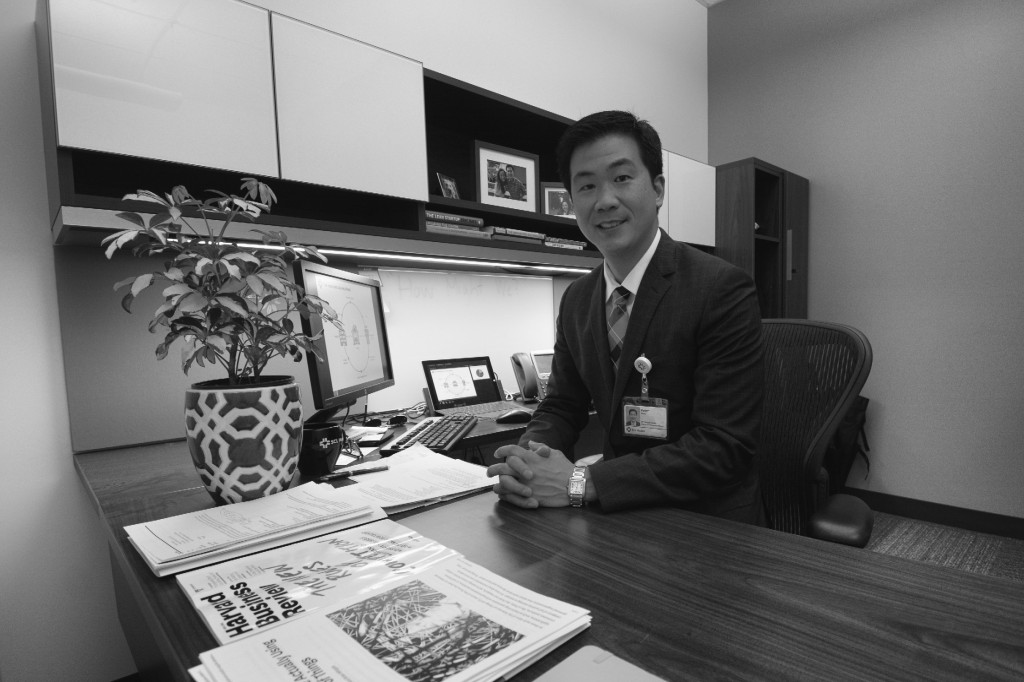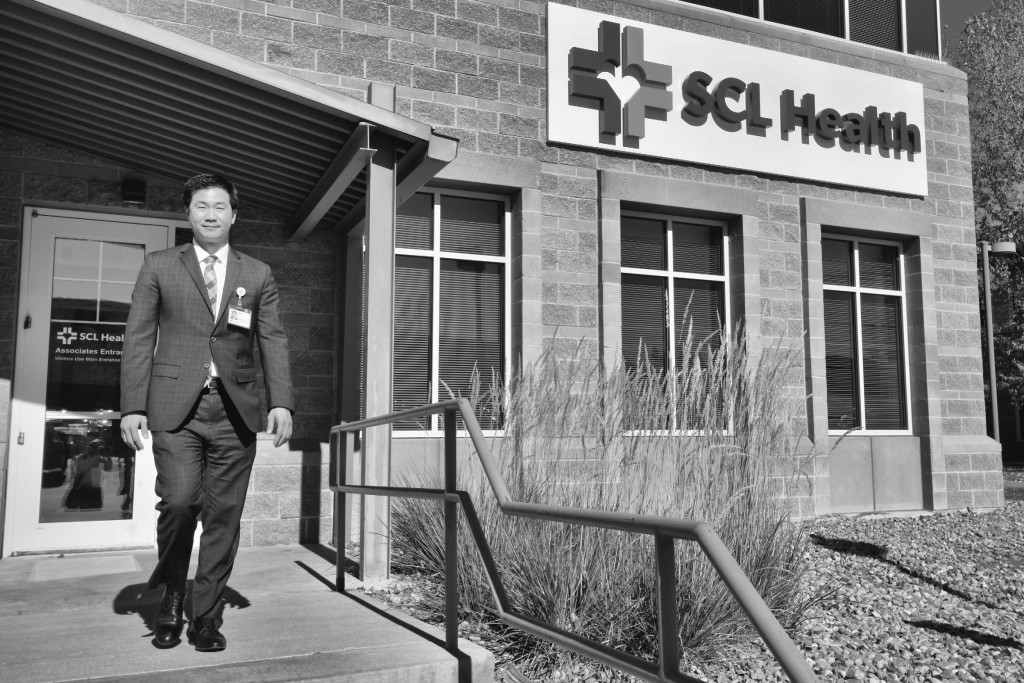DENVER – Peter Kung is System Vice President of Virtual Health at SCL Health System, a position that puts him in the forefront of the digital transformation of healthcare. How does one reach such a position, one that can significantly impact the healthcare provided to an 8-hospital system spanning 3 states?
Beyond heaps of talent and hard work, Peter Kung has accomplished this through a methodical yet harmonious approach and by obtaining the right training and the right experience.
Education
Following completion of an undergraduate degree at the University of California, Irvine, Kung obtained a Masters in Information Systems and Technology at Claremont Graduate University. In a synergistic move, he then obtained a Masters of Business Administration at UCLA Anderson School of Management. This balance between IT and business would serve as the yin-yang of his future success.
Previous Positions
Kung was selected as Director of Informatics at UCLA Health Sciences, a position he held for 7 years. There he developed and supervised a technology platform that encompassed “2 bi-coastal headquarters, 60 remotely staffed sites, multiple governmental agencies, and a budget of $120 million.” Through his efforts, the remote sites were united by common goals, access to clinical services & treatments were improved, and national policy was enhanced.
Not busy enough, Kung also created a Learning Management System at UCLA Health Sciences that served to “educate over 100,000 clinicians.”
Following his service as Director of Informatics, Kung was promoted to the directorship of Innovative Technologies at UCLA Health Sciences and entered a period of great challenge and further innovation. An $8M trial intended to provide “intervention for returning military personnel and their families,” was in crisis. Within a few months, Kung re-organized the project and morphed it into a breakthrough program.
Using an evidence-based behavioral health platform, Kung proceeded to develop a clinical decision support system (the Health-Assessment Management System) that led to the creation of a new center within UCLA’s Neuropsychiatric Hospital/Institute. This initiative grew to serve “over 500,000 service members across 22 military installations” and was supported by over $50 million in funding.
Subsequently, Kung assumed a second position as Director of Strategic Technologies for the UCLA Health System. In this role, and in partnership with the Chief Innovation Officer, he inaugurated the Institute for Innovation in Health, which was charged with the mission of advancing and accelerating transformative care.
His focus was on improving access to specialties, while lowering costs, led Kung to foster projects including enterprise telehealth, e-referral, and behavioral health integration.
After stellar service at UCLA, an individual of such talent and accomplishment was ready for further challenges.
Current Position
In June 2015, Kung became System Vice President of Virtual Health for the SCL Health System. Based in the Denver area, SCL operates 8 hospitals, a children’s mental health center, and over 190 ambulatory sites within 3 states – Colorado, Kansas and Montana. At SCL, he is building further success by relying on his guiding principles.
Business Philosophy
During his training and innovative career, Kung developed 3 guiding principles. They can be summarized as follows:
- Meaningful innovation is continuous.
- Effective innovation is cultural.
- High-impact successes are collaborative.
In other words, you must continue to innovate to reflect the situation and times, innovation without cultural benefit will not be effective, and in order to truly bring disruptive and successful change, collaboration is essential.
He also has identified three skills he wants to “bake” into any organization he creates:
- Connect – Developing a broad and diverse network is fundamental to ideation.
- Converse – Interactive and spontaneous communication expands, evolves, and enriches ideas.
- Create – Making the leap from ideas to impact by mixing, matching, morphing many ideas to produce unique products and services that meet new business goals or satisfy unexpressed needs.
In addition, innovation and execution must go hand in hand. Kung states:
“Innovation and execution are the flip sides of the same coin.”
Since not all innovation will be successful, he reminds himself and other health innovation pioneers to consider the “innovation cycle:” fail fast, fail cheap, fail often.
Finally, such success is not possible without discipline:
“Discipline is required. Considering what’s good for the patient, what’s good for the community, and what’s good the organization is what makes it sustainable.”
Finally, Kung stresses that innovation“ must be scalable and sustainable” to have a positive lasting impact on healthcare.
Next Steps
Kung’s mission over the years matches directly that of SCL; virtual health is a top priority for both. As he looks toward the future, Kung is focused on the care continuum and sustainability:
“Virtual health takes all different clinical and technical components and ties them together across all of the care continuum. That’s what makes it sustainable. Virtual health is not a product in itself.”
Also, acutely aware that “50% of health occurs outside of the hospital,” Kung notes “It is critical for virtual health integrate that component into overall care and wellness.” And, in recognition of the national currents in digital health, Kung states “We have to move from episodic to continuous healthcare.”
Furthermore, since “specialists are geographically restricted, we have to beam them in to provide an opinion. We have to remove the geographic barrier to that second opinion, whether 5 or 500 miles away.”
The goal is increasing the quality of care in this new environment of transformative possibilities. A drive toward “high value innovation that delivers better care at lower costs.”
Yes, it is important to note that creation of this new delivery approach has to be framed properly:
“Treat every patient as they were our own family member.”







Be the first to comment on "Peter Kung: Navigating Training & Experience to Become a Leader in Virtual Health"